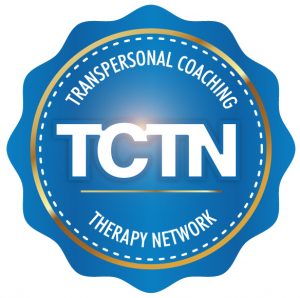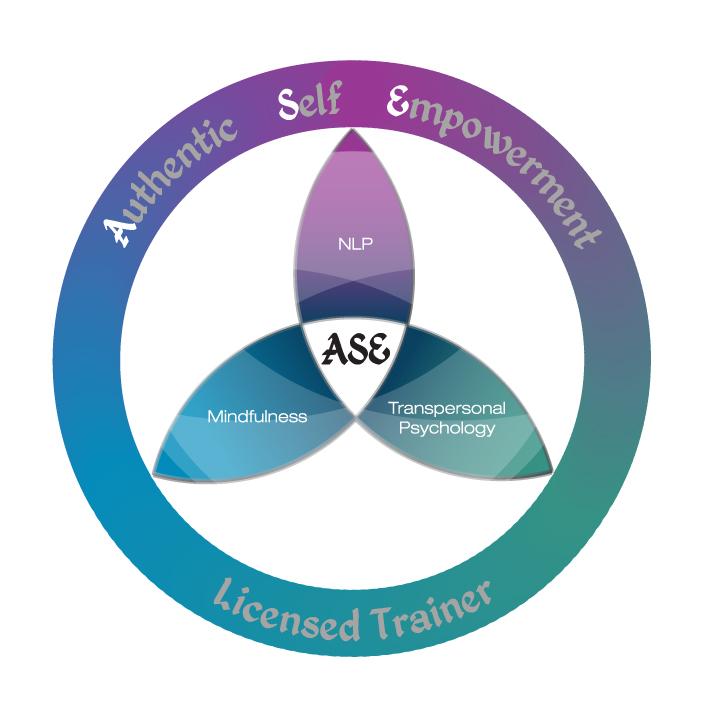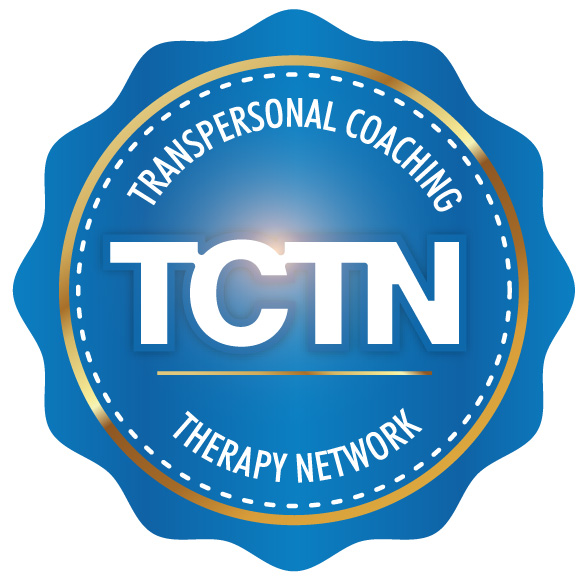Transpersonal Coaching & Therapy Network Forum
Use of this forum is exclusively for TCTN members.
.
For information about TCTN membership (free) visit the TCTN page.
.
Register or login below to add a new forum topic or respond to an existing topic.
Notifications
Clear all
TCTN Forum
3
Posts
2
Users
2
Reactions
1,995
Views
Topic starter
30/04/2019 8:16 am
Although it is not possible to erase unwanted memory memories, with transpersonal hypnotherapy it is possible to do something far more effective … the negative thoughts and emotions that are associated with specific traumatic memories can be changed, with the result that the negative effects of a traumatic memory can be significantly reduced, if not overcome.
It is important to understand that, when it comes to emotions and the thoughts that are attached to them, memory is malleable. So much so that the mind usually plays with our memories each time they are recalled, by adding narratives and meanings. Whether by accident or design, details can be removed and added to memories. This can change the details and beliefs around memories, which can be so flexible that they will even believe in experiences that didn’t happen. So … memories can be influenced by suggestion, and sometimes this can happen by addressing the emotions and thoughts that we associate with these memories.
It becomes more difficult to let go of traumatic and painful memories while negative feelings like pain and frustration are associated with them. Each time a painful memory is recalled, more weight and importance are added to the people and events involved in that memory. In order to overcome the negative effects of a traumatic memory, it is necessary to re-evaluate the past.
This is where hypnotherapy can be helpful. A transpersonal hypnotherapist will help us to change the way that we think and feel about a painful memory, which changes the way the mind and body responds when recalling that memory. The goal of hypnotherapy, when applied to addressing painful memories, is to help the client to resolve and let go of traumatic feelings and emotions and find a new perspective - on life, the world around them, and in their personal capacity.
Hypnotherapy has been accepted as a viable and proven way to eliminate the effects of traumatic memories. It can be deeply healing for individuals who suffer from PTSD, with rapid and sustainable results. Intense fear of people, animals, objects or situations that are not harmful or dangerous (known as a phobia) is also often easily treated. Allowing past experiences to predetermine future relationships and outcomes, will severely cripple the chances of finding happiness and fulfillment in the future, and hypnotherapy can help individuals to resolve and let go of these feelings and emotions.
Maintaining open awareness during the hypnotherapy intervention is a simple and effective way for the transpersonal hypnotherapist to hold the space in which their client’s process can unfold. A transpersonal hypnotherapist in open awareness will intuitively tap into the dynamic space that is co-created by themselves and their client, and is receptive to subtle shifts in energy, facial expressions, body sensations, and other variables such as their own shadow reactions, and how those may be influencing the interaction. There is a balance between cognition and intuition, between action and acceptance, and between the sensory and the conceptual. The therapist is non-reactive, aware of inner and outer processes, and has a deep sense of interconnectedness.
With the aid of a powerful and effective technique such as ASE Past Resourcing, a transpersonal hypnotherapist will help their client to come to terms with their emotions, such as fear, anger or loss of identity - and to deal with the memory of a traumatic event by delving into the unconscious mind in order to reprogram the brain’s response to the original experience by separating the mental pictures and the feelings that the client associates with them, so that irrational fear and behaviour in specific contexts is no longer triggered. The triggers are usually seemingly mundane stimuli that remind a person of the traumatic memory. In the case of a soldier or policeman, it could be something as simple as hearing the pops and bangs from fireworks, or a car backfiring, which can bring back memories of being in a combat situation. The sound of an ambulance may bring back memories for someone who has survived a car accident or violent attack.
The ASE Past Resourcing process includes facilitating a safe and relaxed state, establishing a dissociated perspective, and then guiding the traumatised person to reprocess the traumatic memory so that they are able to update the meaning that their unconscious mind equates with that experience in present time. The re-programming effect of this technique integrates new perspectives that result in the individual’s nervous system no longer triggering the unnecessary activation of the ‘fight or flight’ reaction.
Through positive suggestion, a transpersonal hypnotherapist can help individuals to accept that, while a memory is painful, what happened before will not necessarily happen again. With continued sessions, individuals realise that they can control how they choose to perceive life events, and that painful events in their past are merely there to serve as powerful lessons that make them stronger and ready for what lies ahead. With time and consistency, a transpersonal hypnotherapist can help their clients to develop a positive mindset, one that will think more rationally instead of letting emotions cloud their judgment. It can help us to make positive changes at a subconscious level; it lets us revisit painful and negative memories in a controlled and calm environment, allowing us to process each memory and see them for what they are — memories that form an important aspect of the personality.
Throughout life, different experiences, interactions, and relationships can leave a lasting impact on our lives. This is part of the process of developing the self, and our memories should not hold us back from finding peace and happiness.
Bottom line? Transpersonal hypnotherapy has therapeutic physical, emotional and spiritual benefits, and it is a powerful tool that can help individuals to confront painful memories, accept them, and eventually, let them go. With time, a transpersonal hypnotherapist will help their client to move on from their painful experiences and to view their present life and future life with greater positivity and optimism.
30/04/2019 8:35 am
Hi Mandy,
Yes, that's absolutely right, isn't it?
From a more technical perspective, and thinking about the ASE past resource methodology, what are the potentially hypnotic elements built into this and many other ASE processes?
While not a traditional hypnotherapeutic induction, how does the process invite a shift in conciousness? How is that state different or similar other trance like states?
MandyLag reacted
Topic starter
30/04/2019 10:45 am
Hi Hennie,
Unlike more traditional forms of therapy, which may take years to examine and adjust every negative experience, the ASE methodology utilises the unconscious mind to take the client directly to the root cause - the actual significant emotional event or the symbolic representation, of the client’s issue. We can then provide that part of the unconscious mind with metaphoric resources so that the meaning (and energy) associated with the root cause is transformed.
Several ASE processes entail becoming the observer of your thoughts and thereby less controlled by negative programming. Likewise, the Transpersonal Coaching Model makes use of attention shifting processes to promote resourceful states and responses.
Hypnotic language patterns are frequently and deliberately used in ASE Past Resourcing and many other ASE processes to create artfully vague language that is ambiguous and abstract. This type of communication is a masterful way of quieting the listener’s mind chatter, as they are forced to perform a trans-derivational search (TDS) in an attempt to give meaning to what was said. Unknowingly, the listener begins to associate their experiences to what was being said and accepting direction from the practitioner.
Deliberately using alternate states of consciousness to bypass limiting mindsets and connect with one's inner wisdom is nothing new. This has been done in many forms all over the world for millennia.
There are many forms of therapeutic trance states, with the primary difference being intent.
ASE processes can be conducted conversationally while in open awareness or in a light trance state, such as meditation which may be helpful for the client to focus, to be centred, to relax and to empty their minds. When using ASE methodologies as part of a hypnotherapy session, the process would be for the practitioner to help their client to achieve a comfortable, eyes closed state of relaxation. Hypnosis is a natural state of consciousness in which we are open to suggestions. It is a deliberately deeper form of trance state than meditation, usually induced by the hypnotherapy practitioner who will use hypnotic language and deepening techniques to achieve the level of trance required to achieve the client's desired outcome. Similar to other trance states such as meditation or downtime trances, hypnosis also induces relaxed bodies, our conscious mind chatter is calmed and our attention is free to examine and reprogramme thoughts, feelings, and behaviours that no longer serve us.
MandyLag reacted
Although it is not possible to erase unwanted memory memories, with transpersonal hypnotherapy it is possible to do something far more effective … the negative thoughts and emotions that are associated with specific traumatic memories can be changed, with the result that the negative effects of a traumatic memory can be significantly reduced, if not overcome.
It is important to understand that, when it comes to emotions and the thoughts that are attached to them, memory is malleable. So much so that the mind usually plays with our memories each time they are recalled, by adding narratives and meanings. Whether by accident or design, details can be removed and added to memories. This can change the details and beliefs around memories, which can be so flexible that they will even believe in experiences that didn’t happen. So … memories can be influenced by suggestion, and sometimes this can happen by addressing the emotions and thoughts that we associate with these memories.
It becomes more difficult to let go of traumatic and painful memories while negative feelings like pain and frustration are associated with them. Each time a painful memory is recalled, more weight and importance are added to the people and events involved in that memory. In order to overcome the negative effects of a traumatic memory, it is necessary to re-evaluate the past.
This is where hypnotherapy can be helpful. A transpersonal hypnotherapist will help us to change the way that we think and feel about a painful memory, which changes the way the mind and body responds when recalling that memory. The goal of hypnotherapy, when applied to addressing painful memories, is to help the client to resolve and let go of traumatic feelings and emotions and find a new perspective - on life, the world around them, and in their personal capacity.
Hypnotherapy has been accepted as a viable and proven way to eliminate the effects of traumatic memories. It can be deeply healing for individuals who suffer from PTSD, with rapid and sustainable results. Intense fear of people, animals, objects or situations that are not harmful or dangerous (known as a phobia) is also often easily treated. Allowing past experiences to predetermine future relationships and outcomes, will severely cripple the chances of finding happiness and fulfillment in the future, and hypnotherapy can help individuals to resolve and let go of these feelings and emotions.
Maintaining open awareness during the hypnotherapy intervention is a simple and effective way for the transpersonal hypnotherapist to hold the space in which their client’s process can unfold. A transpersonal hypnotherapist in open awareness will intuitively tap into the dynamic space that is co-created by themselves and their client, and is receptive to subtle shifts in energy, facial expressions, body sensations, and other variables such as their own shadow reactions, and how those may be influencing the interaction. There is a balance between cognition and intuition, between action and acceptance, and between the sensory and the conceptual. The therapist is non-reactive, aware of inner and outer processes, and has a deep sense of interconnectedness.
With the aid of a powerful and effective technique such as ASE Past Resourcing, a transpersonal hypnotherapist will help their client to come to terms with their emotions, such as fear, anger or loss of identity - and to deal with the memory of a traumatic event by delving into the unconscious mind in order to reprogram the brain’s response to the original experience by separating the mental pictures and the feelings that the client associates with them, so that irrational fear and behaviour in specific contexts is no longer triggered. The triggers are usually seemingly mundane stimuli that remind a person of the traumatic memory. In the case of a soldier or policeman, it could be something as simple as hearing the pops and bangs from fireworks, or a car backfiring, which can bring back memories of being in a combat situation. The sound of an ambulance may bring back memories for someone who has survived a car accident or violent attack.
The ASE Past Resourcing process includes facilitating a safe and relaxed state, establishing a dissociated perspective, and then guiding the traumatised person to reprocess the traumatic memory so that they are able to update the meaning that their unconscious mind equates with that experience in present time. The re-programming effect of this technique integrates new perspectives that result in the individual’s nervous system no longer triggering the unnecessary activation of the ‘fight or flight’ reaction.
Through positive suggestion, a transpersonal hypnotherapist can help individuals to accept that, while a memory is painful, what happened before will not necessarily happen again. With continued sessions, individuals realise that they can control how they choose to perceive life events, and that painful events in their past are merely there to serve as powerful lessons that make them stronger and ready for what lies ahead. With time and consistency, a transpersonal hypnotherapist can help their clients to develop a positive mindset, one that will think more rationally instead of letting emotions cloud their judgment. It can help us to make positive changes at a subconscious level; it lets us revisit painful and negative memories in a controlled and calm environment, allowing us to process each memory and see them for what they are — memories that form an important aspect of the personality.
Throughout life, different experiences, interactions, and relationships can leave a lasting impact on our lives. This is part of the process of developing the self, and our memories should not hold us back from finding peace and happiness.
Bottom line? Transpersonal hypnotherapy has therapeutic physical, emotional and spiritual benefits, and it is a powerful tool that can help individuals to confront painful memories, accept them, and eventually, let them go. With time, a transpersonal hypnotherapist will help their client to move on from their painful experiences and to view their present life and future life with greater positivity and optimism.
Hi Mandy,
Yes, that's absolutely right, isn't it?
From a more technical perspective, and thinking about the ASE past resource methodology, what are the potentially hypnotic elements built into this and many other ASE processes?
While not a traditional hypnotherapeutic induction, how does the process invite a shift in conciousness? How is that state different or similar other trance like states?
Hi Hennie,
Unlike more traditional forms of therapy, which may take years to examine and adjust every negative experience, the ASE methodology utilises the unconscious mind to take the client directly to the root cause - the actual significant emotional event or the symbolic representation, of the client’s issue. We can then provide that part of the unconscious mind with metaphoric resources so that the meaning (and energy) associated with the root cause is transformed.
Several ASE processes entail becoming the observer of your thoughts and thereby less controlled by negative programming. Likewise, the Transpersonal Coaching Model makes use of attention shifting processes to promote resourceful states and responses.
Hypnotic language patterns are frequently and deliberately used in ASE Past Resourcing and many other ASE processes to create artfully vague language that is ambiguous and abstract. This type of communication is a masterful way of quieting the listener’s mind chatter, as they are forced to perform a trans-derivational search (TDS) in an attempt to give meaning to what was said. Unknowingly, the listener begins to associate their experiences to what was being said and accepting direction from the practitioner.
Deliberately using alternate states of consciousness to bypass limiting mindsets and connect with one's inner wisdom is nothing new. This has been done in many forms all over the world for millennia.
There are many forms of therapeutic trance states, with the primary difference being intent.
ASE processes can be conducted conversationally while in open awareness or in a light trance state, such as meditation which may be helpful for the client to focus, to be centred, to relax and to empty their minds. When using ASE methodologies as part of a hypnotherapy session, the process would be for the practitioner to help their client to achieve a comfortable, eyes closed state of relaxation. Hypnosis is a natural state of consciousness in which we are open to suggestions. It is a deliberately deeper form of trance state than meditation, usually induced by the hypnotherapy practitioner who will use hypnotic language and deepening techniques to achieve the level of trance required to achieve the client's desired outcome. Similar to other trance states such as meditation or downtime trances, hypnosis also induces relaxed bodies, our conscious mind chatter is calmed and our attention is free to examine and reprogramme thoughts, feelings, and behaviours that no longer serve us.
THIS FORUM IS FOR:
- Exploring the value of transpersonal perspectives in coaching or therapy.
- Investigating the usefulness of transpersonal interventions in coaching or therapy.
- Engaging in conversations to inspire and motivate a transpersonal vision among coaches and therapists.
- Introducing and discussing transpersonal models and processes that can be applied in coaching or therapy.
- Sharing ideas, knowledge, experiences and resources that are useful to transpersonal coaches or therapists.
FORUM RULES:
- Only TCTN members are permitted to post in the TCTN forum. Membership is free
- Posts that are offensive, biased, unethical, unfair or generally negative will not be accepted.
- Any misconduct on the part of a member will result in that member being removed from TCTN and all their member benefits withdrawn.
- It is acceptable to link to published papers, articles and resources that are directly related to the topic of the forum post, however, promoting of services will not be allowed unless the service is relevant and has been granted the IACTM Stamp of Approval.









